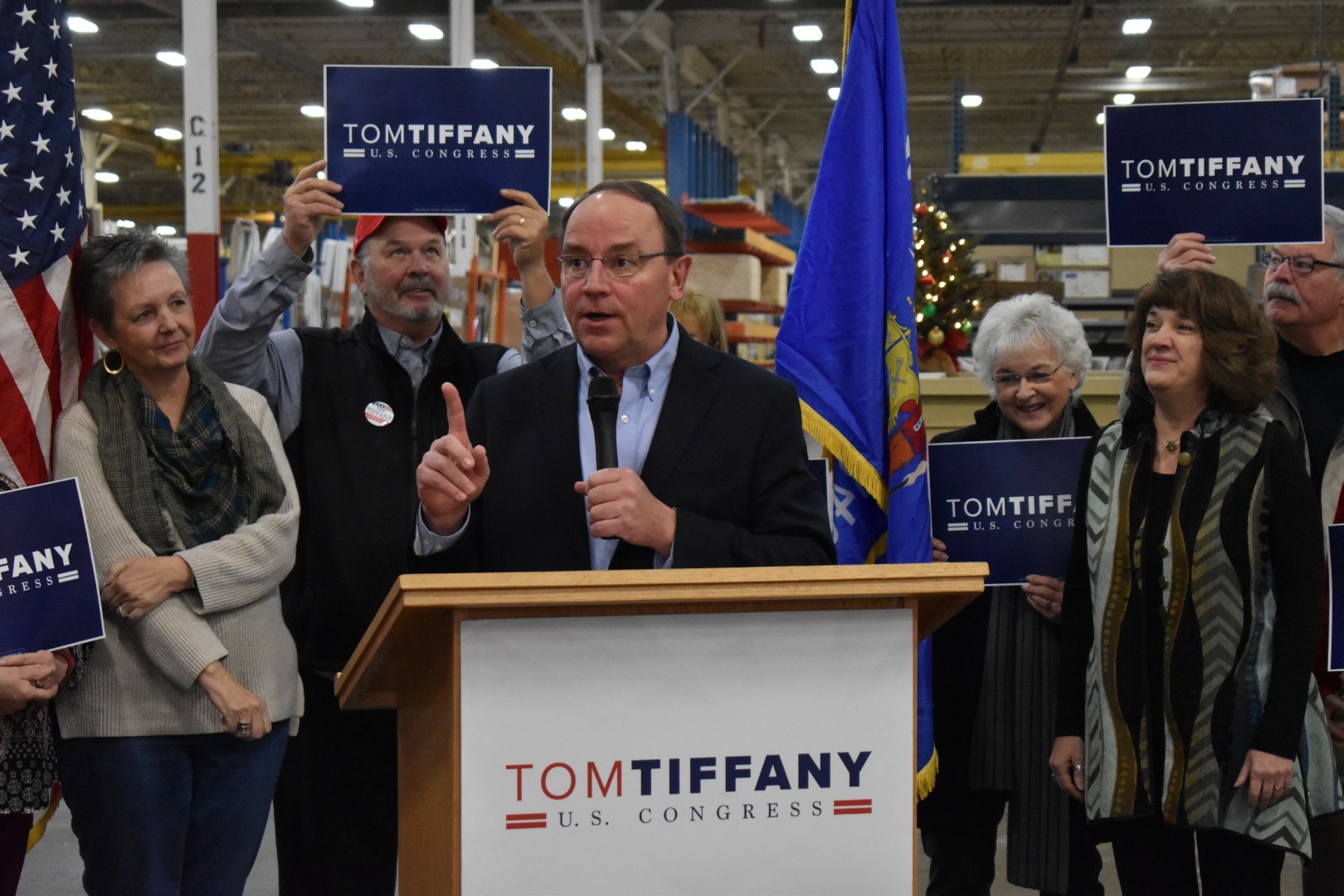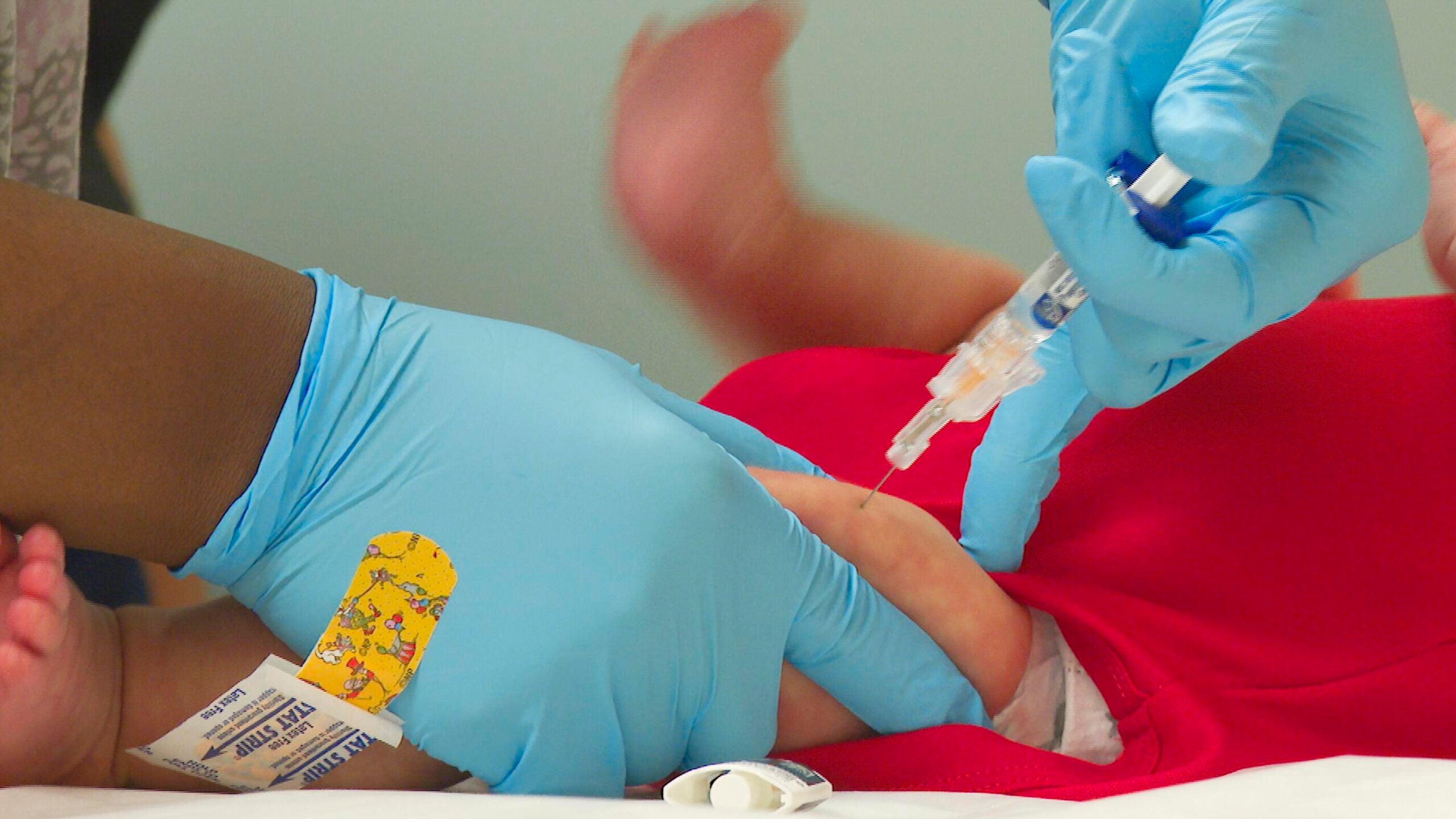A northern Wisconsin congressman made false statements about COVID-19 during a public appearance Monday and said he had discouraged his adult daughters from getting vaccinated against the coronavirus.
The statements by Rep. Tom Tiffany, R-Hazelhurst, at a town hall meeting in Hudson are an example of some people’s continuing resistance to vaccinations — and the challenge to public health officials in persuading enough Wisconsinites to get the shot for the population to reach herd immunity.
Tiffany made several false claims in his discussion of vaccines. Scientific data shows young people can be infected and spread the virus, but Tiffany claimed Monday they are “largely not susceptible to coronavirus.” It is true that younger people are less likely than older people to experience serious health complications from the disease, but it is still possible. And in Wisconsin, two dozen people under the age of 30 have died from the virus.
News with a little more humanity
WPR’s “Wisconsin Today” newsletter keeps you connected to the state you love without feeling overwhelmed. No paywall. No agenda. No corporate filter.
Tiffany also claimed no one in Wisconsin who’s 19 or younger has died from the virus; according to state data, two people have.
And Tiffany’s statements about advising his daughters, ages 22, 21 and 17, against getting vaccinated are in direct contradiction to state and federal public health guidance.
“Think about this practically,” Tiffany said, recounting his conversation with them. “You really are not under that much of a threat as a result of this virus, and I’m not sure why you would go and take a vaccine as a result of that.”
That goes against messages from the Centers for Disease Control and Prevention, the state Department of Health Services and medical professionals. They advise everyone to get vaccinated as soon as they are eligible. On Tuesday afternoon, Gov. Tony Evers announced that all Wisconsinites ages 16 and older would become eligible as of April 5.
Public health officials recommend widespread vaccination as a protection for individuals against the disease, but also as a way of ensuring that the virus cannot easily spread within communities. Even those people who are personally at low risk can still carry and transmit the virus to others. Experts estimate that “herd immunity” effects will help control the virus’s spread when around 80 percent of the population is vaccinated. State officials have said Wisconsin will have enough vaccine supply to make that possible by June — but that will also depend on efforts to persuade millions of people to get vaccinated.
In surveys, Republican men have been most likely to say they will not get the vaccine.
Tiffany won a special election in May 2020 to represent the 7th Congressional District, and was re-elected in the fall. He campaigned as a close ally of former President Donald Trump. In the fall, as Wisconsin was experiencing a spike in new infections, Tiffany was criticized for violating health recommendations and the state mandate by holding an indoor, unmasked campaign event.
Monday’s town hall was also held indoors, and most attendees did not wear masks. Tiffany in his remarks said “I don’t wear a mask. … I believe it’s your choice whether you’re going to wear a mask or not.”
Members of Congress have been eligible for COVID-19 vaccinations since December. Tiffany did not respond to a request from WPR this month asking whether he had chosen to be vaccinated.
At the town hall, Tiffany also endorsed the view that it’s illegal for employers to require COVID-19 vaccinations. That’s a question that may be tested in court, but there’s little support for the view that employers don’t have the right to mandate vaccines. In December, the federal Equal Employment Opportunity Commission issued updated guidance to employers that found it was allowed as long as the employers offer legally mandated religious and disability exemptions.
The Wisconsin Assembly passed a bill earlier this month that would ban employers from requiring vaccinations, but it has yet to pass the state Senate and it’s unclear if Gov. Tony Evers would sign it into law.
In a statement to WPR, Tiffany said, “It is up to young adults — and frankly all Americans — to decide for themselves, in consultation with their physician, if they want to get vaccinated, and government should not mandate that anyone do so as a condition of living their daily lives.”
Wisconsin Public Radio, © Copyright 2025, Board of Regents of the University of Wisconsin System and Wisconsin Educational Communications Board.







